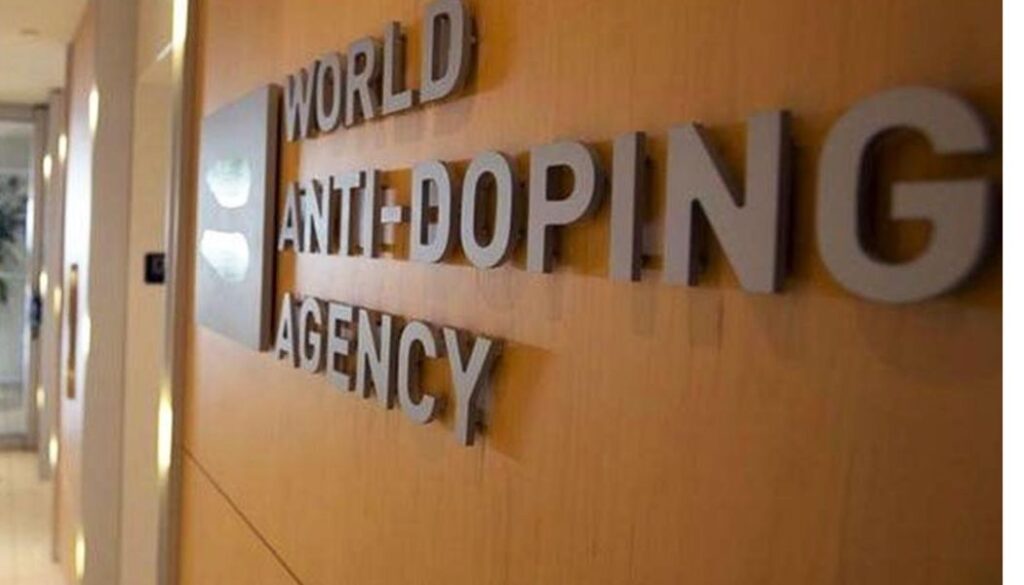World Anti-Doping Agency declares Kenya non-compliant

World Anti-Doping Agency declares Kenya non-compliant
Kenya’s global athletics reputation faces a fresh test after the World Anti-Doping Agency (WADA) formally declared the country’s anti-doping body non-compliant with international standards.
The latest development raises serious questions about Kenya’s sporting credibility ahead of major international competitions.
The government and ADAK have yet to issue an official response.
The move, announced Thursday, followed an audit conducted in May 2024 that flagged several critical shortcomings within the Anti-Doping Agency of Kenya (ADAK).
In a statement issued after its Executive Committee meeting in Prague, Czechia, WADA said ADAK had failed to meet multiple requirements of the World Anti-Doping Code.
While the specific shortcomings were not disclosed, WADA noted they were serious enough to warrant formal action under Article 9.3.1 of its compliance framework. Kenya now has 21 days to either dispute the ruling or correct the flagged issues.
“The Signatory consequences listed in the ExCo decision will apply as of October 3, 2025, if ADAK does not correct its non-conformities in full,” WADA said.
If the non-compliance stands, ADAK will immediately lose its privileges within WADA structures, including funding eligibility, committee representation, and participation in programs.
Kenya would also be barred from bidding to host future regional, continental, or global championships, though events already allocated to the country would not be affected.
The consequences extend beyond ADAK’s operations.
Kenyan officials would be excluded from boards or committees of international sporting bodies.
Further sanctions could follow in 2026 if compliance issues remain unresolved, including third-party supervision of ADAK’s operations.
In a worst-case scenario, Kenya’s flag could be suspended from display at international events such as the Olympics and Paralympics.
“The decision will automatically enter into force by midnight on October 2, 2025, unless ADAK corrects its non-conformities in full or disputes the allegation,” WADA said, urging sports bodies worldwide to prepare for enforcement.
The agency further warned of escalating penalties if compliance is not restored within set timelines.
After six months of continued non-conformity, ADAK’s testing and results management would be placed under third-party supervision, with costs borne by Kenya.
After 12 months, the sanctions would be even more severe: Kenya’s national flag would not be displayed at international competitions, including the Olympic and Paralympic Games, until ADAK is reinstated.
Section of candidates get direct ODM tickets
CS Murkomen addresses incident of drunk OCS at his meeting
DCI responds to allegations of spyware installation on people’s mobile phones
South Sudan charges VP Machar with treason, murder over military attack
Kenya, famed for its dominance in middle- and long-distance running, has in recent years faced mounting scrutiny over doping cases.
According to the Athletics Integrity Unit (AIU), dozens of Kenyan athletes have been suspended for doping-related offenses, prompting global concern.
Under the World Anti-Doping Code, all signatories, including Olympic federations and regional sports organizations, are required to enforce WADA’s sanctions in full.
With just three weeks to respond, the ball is now firmly in Kenya’s court.
Whether through dispute or swift reform, the government and ADAK must act to prevent sanctions that could stain the country’s proud sporting legacy.
If ADAK does not resolve its compliance issues or challenge WADA’s decision by October 2, 2025, the sanctions will take effect immediately.
This would strip ADAK of all privileges within WADA, cutting it off from funding, programs, and global representation.
Kenya would also lose the right to bid for or host future championships, although events already awarded to the country would still proceed.
The ruling also reduces Kenya’s influence in international sport.
ADAK representatives and Kenyan officials would no longer be allowed to serve on boards, committees, or working groups of WADA or its affiliates.
For athletes, the immediate impact may seem indirect, but long-term consequences are serious.
After six months of continued non-compliance, ADAK’s testing would come under third-party control at Kenya’s expense.
After 12 months, the Kenyan flag would be banned from international competitions, including the Olympics and Paralympics, until ADAK is reinstated.
Kenyan athletes would still compete, but under a cloud of doubt.
Stricter testing abroad and the absence of national symbols would diminish the pride and unity of representing the country. For a nation that has built its global identity on athletics, the stakes could not be higher.
Murang’a MCAs declined Ruto’s invite to State House – Rigathi Gachagua
Senior official arrested in Lawyer Mbobu murder probe
SHA announces 507 jobs; How to apply
Senior police officer arrested for attending CS Murkomen event while drunk
Follow us





